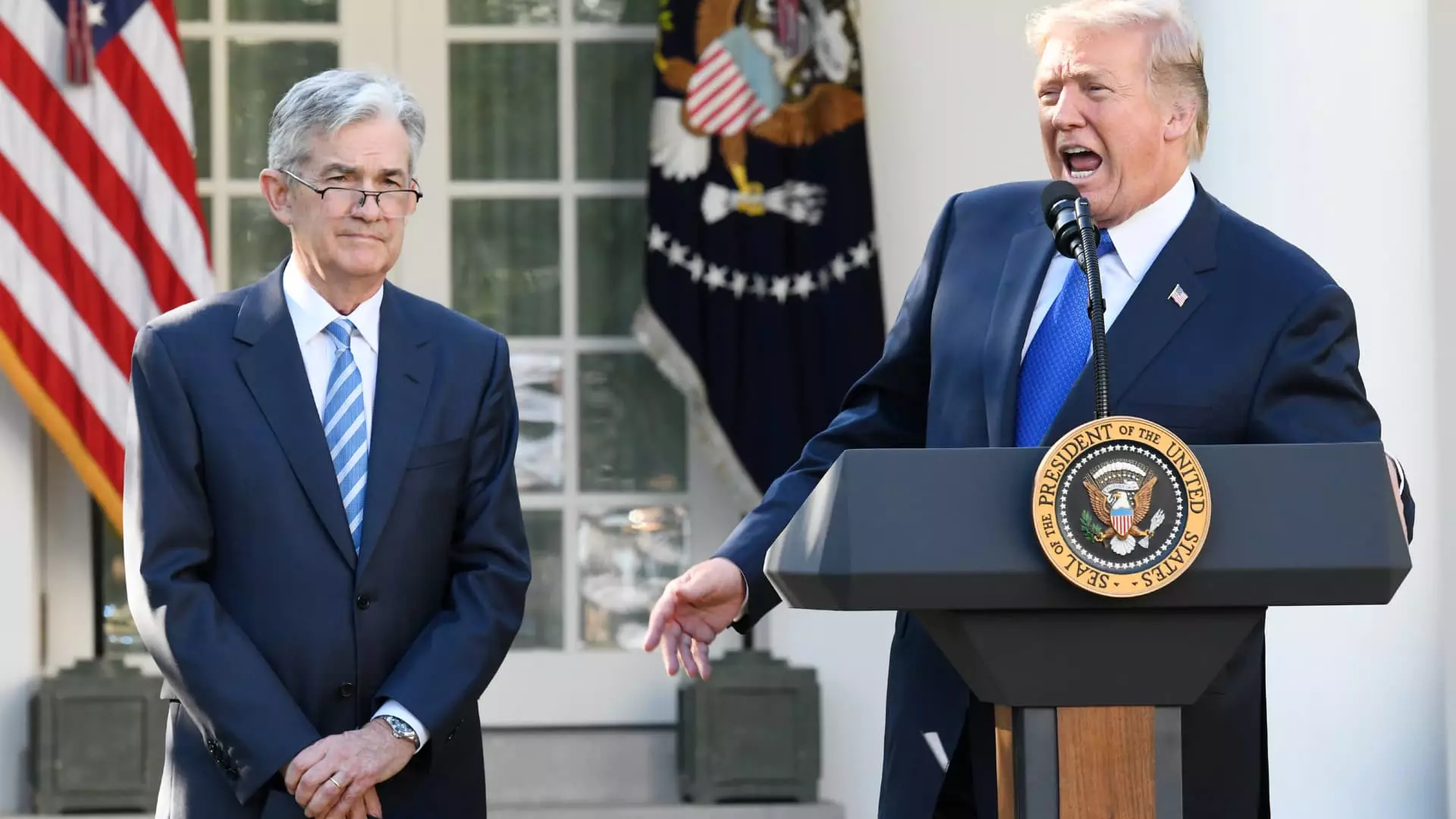Former President Donald Trump has been notoriously vocal in his calls for the Federal Reserve to lower interest rates, and his recent outburst demanding a full percentage-point reduction paints a picture of an audacious yet ill-conceived economic strategy. Just as the Federal Reserve prepares for its upcoming meetings, and amid a surprisingly positive jobs report, Trump has reignited his campaign against Jerome Powell, the Chairman of the Fed, pushing for cuts that would likely destabilize the economy. This sort of reckless pursuit reflects not only a misunderstanding of economic fundamentals but also a profound disregard for the potential consequences of such policies.
Despite Trump’s insistence that the U.S. economy is “doing great,” it is crucial to examine the broader context. Economic growth indicators become muddled when viewed through the lens of partisan expectations, and it’s clear that Trump’s approach is more about personal aggrandizement than genuine fiscal responsibility. Calls for drastic cuts in interest rates while simultaneously claiming economic strength send contradictory signals to the market, revealing the dissonance at the heart of his economic reasoning.
A Misguided Perspective on Borrowing Costs
Trump’s justification for urging lower borrowing costs—a supposed relief for people waiting to refinance debt—rings hollow against the reality of a changing global economic landscape. His assertion that lower rates could spur economic growth fails to recognize that interest rates are already at historic lows. The economic mechanics of supply and demand dictate that merely lowering costs does not automatically lead to increased spending or consumer confidence, particularly when underlying risks—such as inflation and trade tensions—loom large.
Moreover, the robust employment figures presented by the Bureau of Labor Statistics, which showed a surprising increase of 139,000 jobs, indicate that the economy is not in the dire straits Trump seems to portray. By wanting the Fed to cut rates even further, he risks setting off inflationary spirals, which historically have left economies reeling. Powell’s cautious stance—maintaining interest rates despite pressure from Trump—arguably serves a greater good, preserving economic stability over ephemeral political gain.
The International Comparison Fallacy
Part of Trump’s argument hinges on the notion that other central banks—like the European Central Bank (ECB)—are slashing rates, thereby putting pressure on the Fed to follow suit. However, this line of reasoning is fundamentally flawed. The economic environments that dictate why other central banks might lower their rates are oftentimes starkly different from those in the United States. A simple comparison ignores the nuances of each economy’s health and the specific challenges they face.
The ECB’s rate cuts were responses to persistent low inflation and stagnant growth within the Eurozone, which present a situation unlike that of the U.S. market. U.S. policymakers are rightfully concerned that an untethered lowering of interest rates could lead to rampant inflation, already exacerbated by Trump’s own trade policy missteps. Thus, suggesting an aggressive rate cut merely because others are doing so reveals Trump’s neglect towards understanding the intricate mechanisms of global economics.
The ‘Too Late’ Label: An Economic Blunder
When Trump disparagingly referred to Powell’s actions as a “disaster,” labeling his approach as “too late,” it highlighted an alarming trend—the use of incendiary rhetoric at the expense of economic prudence. Such incendiary language only breeds uncertainty and mistrust in the financial markets, which thrive on stability and predictability. Furthermore, it risks undermining the independence of the Federal Reserve, an institution that must operate with a certain degree of insulation from political pressure to function effectively.
Trump’s fixation on personal animosity and public slander against Powell adds a layer of volatility to an already complex economic theater. To vilify a central bank chairman for not complying with his wishes is not merely reckless; it poses existential threats to the principles of democracy and economic sanity. The economic policymakers must remain dedicated to their mandate without succumbing to pressure from political whims.
In a political landscape increasingly characterized by short-term gains over long-term outcomes, the dangers of misrepresenting economic realities become apparent. The focus must shift away from cries for rapid rate cuts and towards understanding a balanced approach that considers all aspects of economic health—balancing both growth and stability while resisting the temptation to engage in damaging political gamesmanship.

